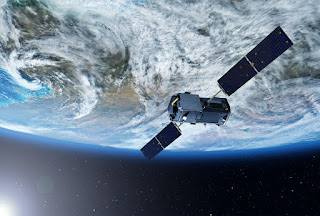7 Ocean Pollution Effects Explained
Ocean pollution effects are; cardiovascular ailment, endocrine disruption, gastrointestinal illness, economic losses, behavioral and migratory changes, biodiversity decline, oxygen depletion, water and soil degradation.
They can be categorized broadly into; ocean pollution effects on humans, marine life; and the environment.
Ocean pollution is a form of aquatic environmental degradation that shares close ties with other concepts like plastic pollution, oil spill, and wastewater discharge.
This article discusses the effects of ocean pollution, as outlined below;
-Ocean Pollution Effects on Humans
-Ocean Pollution Effects on Marine Life
-Ocean Pollution Effects on the Environment
-Ocean Pollution Effects on Humans
1). Cardiovascular Ailment (as one of the Ocean Pollution Effects)
Cardiovascular disease is one of the effects of ocean pollution on human health.
This usually occurs as a result of human contact with some pollutants in marine ecosystems, in the course of transport, food consumption, recreation, offshore drilling, and other activities.
One of the most common marine pollutants that can cause cardiovascular ailment is methyl mercury [1].
This pollutant can enter the human body through consumption of sea foods like fish.
Mercury pollution may result from the discharge of harmful materials into oceans during oil spill, industrial and agricultural chemical disposal, among others.
Aside cardiovascular ailment, ocean pollution by mercury and its compounds can cause psychological illnesses like dementia [5].
The most vulnerable population with respect to such illnesses include people who live or work in proximity to the sea. This implies that long-term exposure is a high-risk factor.
2). Endocrine Disruption
Ocean pollution effects on human health include endocrine disruption.
The term is a broad one, and describes all health problems linked to, or caused by, unfavorable changes in the hormonal makeup or balance of living organisms.
With regards to marine pollution, endocrine disruption is notably linked to plastic pollution, where microplastics in the ocean introduce a group of harmful compounds known as ‘endocrine disrupters’ or ‘endocrine disrupting chemicals’ (EDCs) [3].
These chemicals mostly enter into the human body through ingestion of seawater or seafood.
Also, oil spill can contribute to endocrine disruption, through the effect of persistent organic pollutants (POPs) that can alter the equilibrium of hormones in the endocrine system.
The endocrine-disrupting property of ocean pollutants may also affect marine life, and could cause loss of biodiversity and organic activity in oceans.
3). Economic Losses (as one of the Ocean Pollution Effects)
Economic losses resulting from ocean pollution, typically amount to several billions of dollars each year [2].
There are various avenues through which such losses occur and accumulate. One of them is environmental remediation.
Efforts to reverse the environmental impacts of ocean pollution, such as plastic removal, water and soil treatment; can be significantly expensive.
In cases where ocean pollution is a consistent problem, the long term economic losses on cleanup will be substantial.
Economic losses from ocean pollution could also occur in the form of loss of revenue from ocean-dependent sectors and businesses including aquaculture, fishing, tourism and sea transport.
Also, health problems caused by ocean pollution can also lead to economic losses.
-Ocean Pollution Effects on Marine Life
4). Behavioral and Migratory Changes
Ocean pollution leads to behavioral changes in marine organisms.
This is due to the effects of pollution on the physicochemical characteristics of oceans.
Sudden changes in marine conditions like temperature, pH, salinity, turbidity, and light penetration, can all influence the behavior of organisms.
Feeding, reproduction, and migration patterns of marine organisms can all be altered by ocean pollution.
These changes can reduce regional abundance and survival prospects, of marine organisms.
5). Biodiversity Decline (as one of the Ocean Pollution Effects)
Ocean pollution can cause deplete the populations of multiple marine organic species, thereby causing biodiversity loss.
Two ways in which this can occur are; through species’ death and low reproduction rates.
Low reproduction or fertility rates in the marine ecosystem may be an outcome of endocrine disruption which occurs when organisms are exposed to some pollutants in water.
Death of marine organisms can also occur as a result of ocean pollution.
Pollutants like plastics can cause the entanglement and suffocation of small marine animals [6].
When these plastics (or other marine pollutants) are ingested by small organisms, the toxins from the pollutants may accumulate in their bodies. Through feeding, the same toxins can spread across all trophic levels of the marine energy pyramid, and can reduce survival rate of organisms.
Other ways in which ocean pollution reduces biodiversity include habitat destruction, and loss of food resources.

-Ocean Pollution Effects on the Environment
6). Oxygen Depletion
Ocean pollution affects oxygen concentration by facilitating processes and establishing conditions that change the rate at which oxygen is both produced and consumed.
Oxygen is depleted from the ocean by the influence of biochemical and physicochemical changes caused by pollutants; such as higher rates microbial biodegradation [4].
For both organic pollutants (biomass) and inorganic pollutants like synthetic plastic, their presence in marine ecosystems increases the rate of microbial activity and the growth of algae, ultimately leading to oxygen depletion.
Excessively-low oxygen concentration in the ocean is referred to as hypoxia, and it can disrupt geochemical cycles and other processes needed for optimal functioning of the marine ecosystem.
7). Water and Soil Degradation (as one of the Ocean Pollution Effects)
Marine pollution reduces the quality of water and soil within the environs of affected water bodies.
This reduction in quality can be attributed to the introduction of harmful materials like chemicals and insoluble solids, into the ocean.
Ocean pollution can vary significantly in its severity, and may be based on any of various pollutants including sewage, inorganic municipal waste, greywater, and biomass-dependent pathogens.
In some cases, ocean pollution can affect air quality.
An example of such cases is marine oil spill, where volatile organic compounds in water may evaporate and enter the atmosphere as air pollutants.

Conclusion
Ocean pollution effects are;
1. Cardiovascular Ailment
2. Endocrine Disruption
3. Economic Losses
4. Behavioral and Migratory Changes
5. Biodiversity Decline
6. Oxygen Depletion
7. Water and Soil Degradation
References
1). Al-Sulaiti, M.; Soubra, L.; Al-Ghouti, M. A. (2022). “The Causes and Effects of Mercury and Methylmercury Contamination in the Marine Environment: A Review.” Current pollution reports 2022 v.8 no.3 pp. 249-272. Available at: https://pubag.nal.usda.gov/catalog/7928778. (Accessed 27 November 2022).
2). Beaumont, N.; Aanesen, M.; Austen, M. C. V.; Börger, T.; Clark, J. R.; Hooper, T.; Lindeque, P. K.; Pascoe, C.; Wyles, K. (2019). “Global ecological, social and economic impacts of marine plastic.” Marine Pollution Bulletin 142. Available at: https://doi.org/10.1016/j.marpolbul.2019.03.022. (Accessed 27 November 2022).
3). Chen, Q.; Allegeier, A.; Yin, D.; Hollert, H. (2019). “Leaching of endocrine disrupting chemicals from marine microplastics and mesoplastics under common life stress conditions.” Environment International 130:104938. Available at: https://doi.org/10.1016/j.envint.2019.104938. (Accessed 27 November 2022).
4). Singh, G.; Singh, A.; Shukla, R.; Tripathi, S.; Mishra, V. (2021). “The Fate of Organic Pollutants and Their Microbial Degradation in Water Bodies.” Available at: https://doi.org/10.1002/9781119693635.ch9. (Accessed 27 November 2022).
5). Siblerud, R.; Mutter, J.; Moore, E.; Naumann, J.; Walach, H. (2019). “A Hypothesis and Evidence That Mercury May be an Etiological Factor in Alzheimer’s Disease.” International Journal of Environmental Research and Public Health 16(24):5152. Available at: https://doi.org/10.3390/ijerph16245152. (Accessed 27 November 2022).
6). Tekman, M. B.; Walther, B. A.; Peter, C.; Gutow, L.; Bergmann, M. (2022). “Impacts of plastic pollution in the oceans on marine species, biodiversity and ecosystems.” Available at: https://doi.org/10.5281/zenodo.5898683. (Accessed 27 November 2022).

